
WOMAD is an international arts festival. The central aim of WOMAD is to celebrate the world's many forms of music, arts and dance.
Real World Records is a British record label specializing in world music. It was founded in 1989 by English musician Peter Gabriel and original members of WOMAD. A majority of the works released on Real World Records feature music recorded at Real World Studios, in Box, Wiltshire, England.
Fifth Column was a Canadian all-female post-punk band from Toronto, formed in 1980 and breaking up in 1995.

Geoffrey Oryema was a Ugandan musician. In 1977 after the murder of his father, Erinayo Wilson Oryema, who was a cabinet minister in the government of Idi Amin, he began his life in exile. At the age of 24, and at the height of Amin's power, Oryema was smuggled out of the country in the trunk of a car.
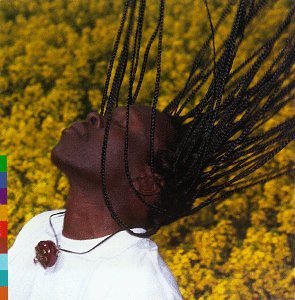
Exile is the debut album by the Ugandan musician Geoffrey Oryema. It was released in 1990. The album has sold more than 50,000 copies.
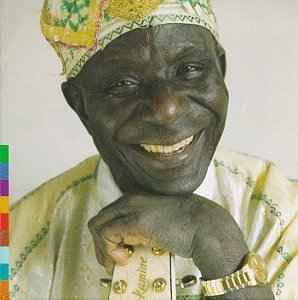
Dead Men Don't Smoke Marijuana is the final album by Sierra Leonean highlife and palm-wine musician S. E. Rogie, recorded at Real World Studios, Wiltshire, England, in 1993–94 and released in May 1994 by Real World Records. Production was carried out by American producer Tchad Blake, who worked in an intimate fashion. In addition to Rogie's three-piece backing band, the album also features the English double bassist Danny Thompson and guitarist Alfred Bannerman. The album is characteristic of Rogie's palm-wine material, with his syncopated folk songs, finger-picked acoustic guitar playing style, sulky baritone vocals, often in the Krio language, and African call-and-response vocals.

It's Low Beat Time is an album by the Americanrock band Young Fresh Fellows. It was released by Frontier Records in 1992. The album was produced in part by Butch Vig.
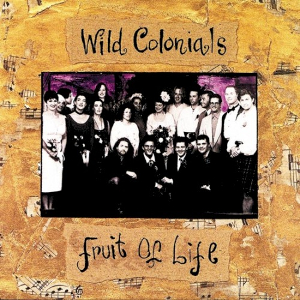
Fruit of Life is the debut album by the Wild Colonials, released in 1994. "Spark" was released as a single and was a radio hit. The band supported the album with a North American tour, including shows with Toad the Wet Sprocket and Grant Lee Buffalo.

Lik My Trakter is the first album by the Canadian band the Waltons, released in 1992. Initially released independently, it received a national release on Warner Music Canada; it was released by Sire Records in the U.S. The band supported the album with a Canadian tour, often playing with Barenaked Ladies. The album was certified gold in Canada.
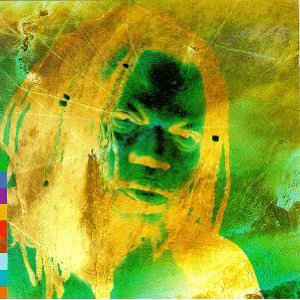
Songs for the Poor Man is the first studio album and second album overall by Tanzanian soukous musician Remmy Ongala and his band Orchestre Super Matimila, released in 1989 on Real World Records. The album follows Ongala's acclaimed appearances at the WOMAD Tour and WOMAD'S release of Naillia Mwana, a compilation of early music by Ongala, two events which gave Ongala international recognition. Songs for the Poor Man was recorded at the WOMAD-affiliated Real World Studios in Wiltshire over three days in May 1989 with production, engineering and mixing help from David Bottrill.
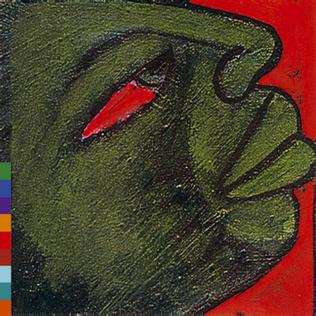
Marjurugenta is the debut album by Mozambican marrabenta band Ghorwane, recorded in August 1991 at Real World Studios but not released until September 1993 by Real World Records. The band had built up a reputation in their native country throughout the 1980s for their unique urban dance musical style and politically conscious lyrics, pulling from genres such as marrabenta and xigubu. After being denied visas to play at a European festival in 1987, it soon became possible for the band to play the world music-celebrating WOMAD festival in 1990. While on their trip to the festival, the band were approached by the WOMAD-affiliated Real World Records to record their debut album.

Fifa is an album by the Beninese musician Angélique Kidjo, released in 1996. It was the first album on which Kidjo sang in English in addition to Fon and French. Fifa was considered to be an attempt at a crossover album. The first single was "Wombo Lombo".

...But You Can Call Me Larry is an album by the Canadian musician Lawrence Gowan, released in 1993. The album's first single was "When There's Time "; three more singles were released. The album went gold in Canada. Gowan is credited by his full name on the album cover.

Trance is an album by the Moroccan musician Hassan Hakmoun. It was released in 1993. He is credited with his band, Zahar. Hakmoun supported the album by playing "The Musical World of Islam" concert series, in 1993, as well as Woodstock '94.
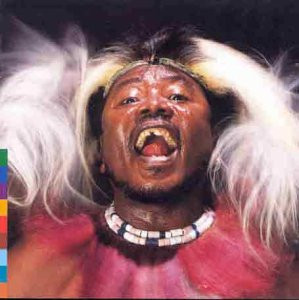
Chibite is an album by the Tanzanian musician Hukwe Zawose, released in 1996. Zawose played the 1995 WOMAD Festival, leading to his association with Peter Gabriel. Chibite was Zawose's first album to be widely distributed.
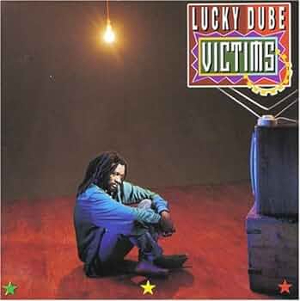
Victims is an album by the South African musician Lucky Dube, released in 1993. It has sold more than a million copies. Lucky Dube supported the album with a North American tour.

Travelin' Light is an album by the American musician Zora Young. Young supported the album by playing shows with her band, the Blues Posse.

Rhythm of the People is an album by the American musician Robert Ward, released in 1993.

Where Blue Begins is an album by the American musician Deborah Coleman, released in 1998. Coleman supported the album with a North American tour, backed by her band, the Thrillseekers. Coleman was nominated for a W. C. Handy Award for best "Blues Instrumentalist, Guitar".
Every One of Us is an album by the American musician Ray Anderson, released in 1992. He supported the album with a North American tour. The album is dedicated to John Coltrane and includes a version of his composition "Dear Lord".

















